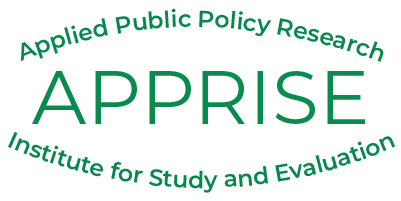APPRISE Survey Research –
Payment Assistance Programs
APPRISE conducted a comprehensive evaluation of Allegheny Power’s Universal Service Programs. The evaluation research included interviews with Allegheny and agency program managers and staff, surveys with participating and nonparticipating customers, analysis of program databases, and analysis of the impacts of the payment assistance program on energy affordability, payment compliance, arrearages, and collections costs.
Ameren’s Keeping Current Program provides electric bill payment assistance and arrearage forgiveness to low-income customers. APPRISE conducted four evaluations of the Keeping Current Program that included surveys, in-depth interviews, analyses of program benefits delivered, and analysis of the program’s impact on affordability, bill payment, and collections actions. The reports and presentations are available for download here.
Baltimore Gas and Electric (BGE) designed and implemented pilot programs to determine the effect of energy bill discounts and payment counseling on the payment timeliness of limited-income customers. The Graduated Rate Discount (GRAD) Program provided a range of usage-based discounts. Some of the customers also received a home energy audit or payment counseling phone calls. The Customer Assistance Maintenance Program (CAMP) pilot tested changes to BGE’s CAMP including increased bill credits, payment counseling, or both. APPRISE’s process and impact evaluation assessed the effectiveness of these pilots in increasing customers’ on-time bill payment and energy conservation behavior.
The California Public Utilities Commission (CPUC) created the Arrearage Management Plan (AMP) Program to reduce the risk of disconnection from energy services by providing arrearage forgiveness and rewarding on-time bill payments. AMP provides customers with forgiveness of their unpaid electric and gas utility bills if they pay their current monthly bills on time. APPRISE is conducting a comprehensive evaluation of this program that includes program administrator interviews; a quantitative participant survey; analysis of program data; and estimation of the impacts of the program on arrearages, disconnections, and bill payment. Based on the findings from this evaluation, we will recommend whether the CPUC should modify, extend, or discontinue AMP.
The California Investor-Owned Utilities (IOUs) have introduced a Percentage of Income Payment Plan (PIPP) Pilot aimed to reduce the number of low-income households at risk of disconnection. The Pilot will limit energy bills to approximately four percent of a household’s income. APPRISE is conducting a comprehensive evaluation to assess the impact of the Pilot on payment behavior, disconnections, energy usage, and access to essential services. The research will include interviews with IOUs and Community-Based Organizations; surveys with participating customers; and analysis of customer bills, payments, usage, and collections actions using a matched comparison group. The evaluation will recommend whether the Pilot should be implemented with modifications based on the findings from the comprehensive study.
UGI has Universal Services programs to help low-income customers maintain affordable energy services. APPRISE conducted evaluations of these programs in 2012 and 2024. The focus of the evaluations were UGI’s Customer Assistance Program (CAP), that provides reduced energy bills to improve affordability for low-income customers. APPRISE’s research included an assessment of the program design; review of the program costs and implementation; participant and nonparticipant feedback; and analysis of the impacts of the program on bill payment, arrearages, and collections costs.
